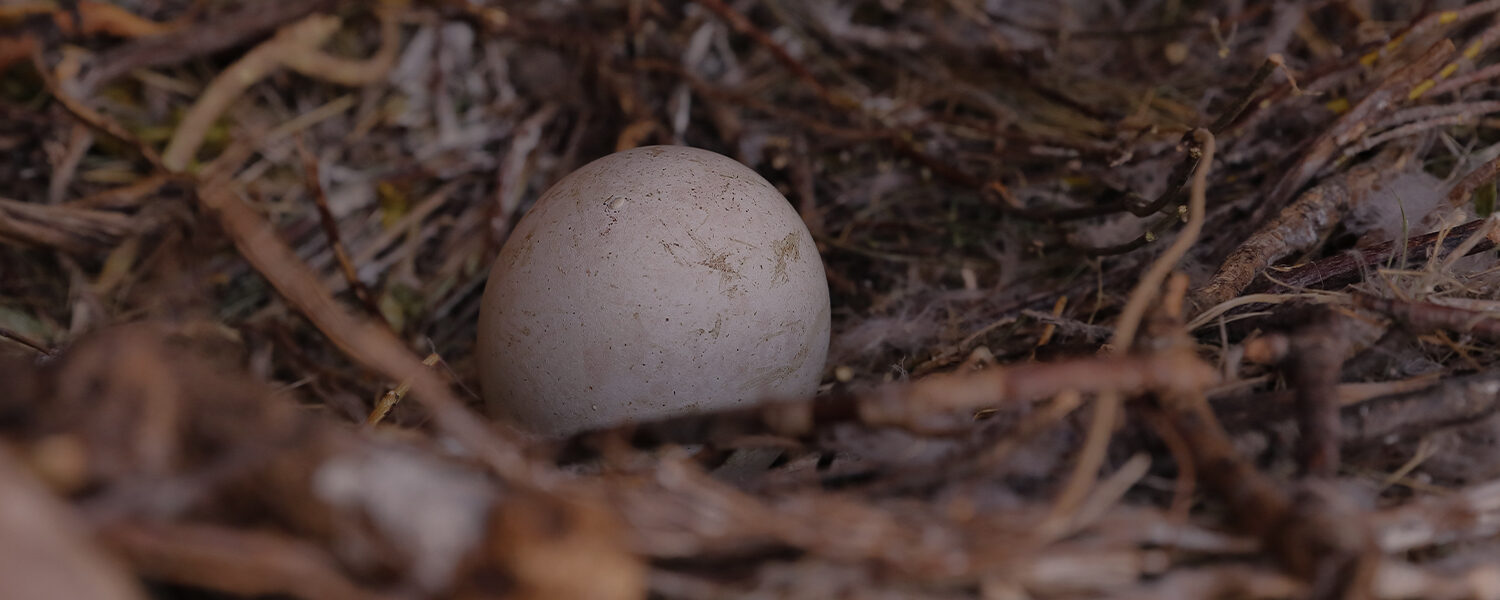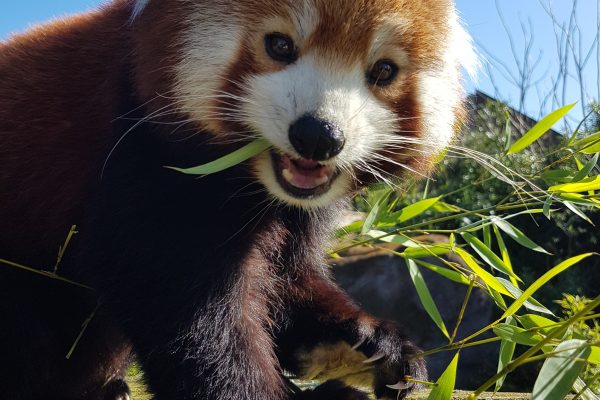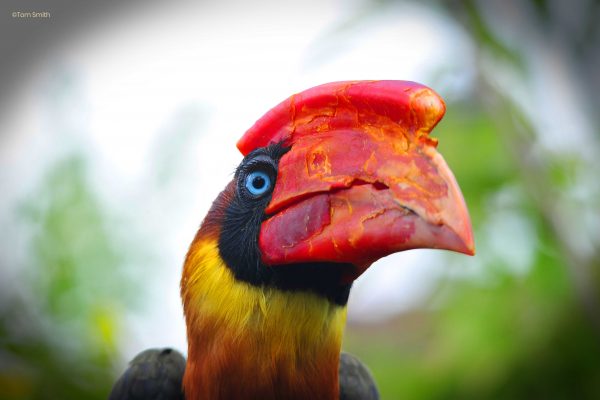Posted July 28, 2022 in New Arrivals
King Vulture Chick
Since release of this news in July 2022, unfortunately this chick sadly passed away in October 2022.
This species of vulture is not often successfully bred and therefore there is limited research and information available about the development of these chicks. Unfortunately the chick in this instance did not make it past the stage of fledgling despite our best efforts in supporting mum Midas in rearing her young.
However, this experience helps towards research to assist the conservation of this species in the future.
A Cracking New Arrival
Over the last three years, our King vulture (Sarcoramphus papa) pair, Martin and Midas, have successfully produced fertile eggs, however our male, Martin, has shunned his parenting duties and unfortunately each chick hasn’t survived. We have tried various approaches in helping each chick and have been unsuccessful… until now!
This year, our Animal Care Team decided the best course of action was to remove the fertile egg a few days before it was due to hatch and replace it with a fake egg for the last part of the incubation process for Midas. The team knew that the egg was due to hatch on or around 21st June after carrying out regular health checks that included weighing and candling (using a light to see through the thin shell and assess the chick inside).
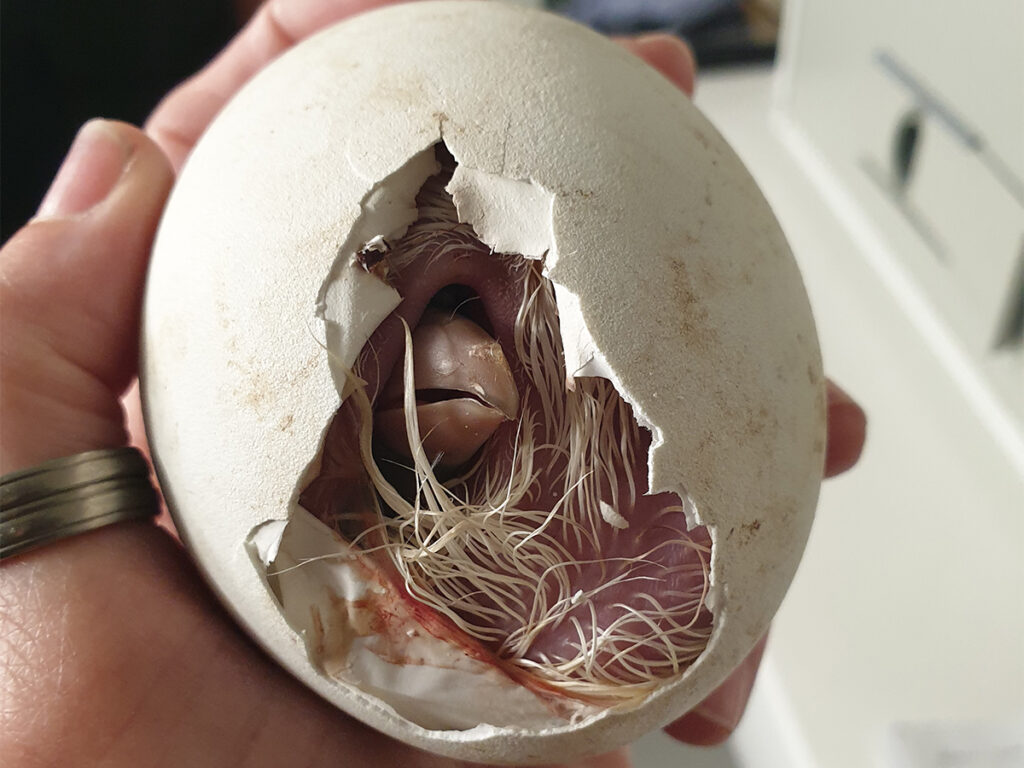
On 16th June, the team decided to remove the fertile egg and place it in an incubator system. The team were delighted when the chick started to break through the shell just two days later! Hatching can be a long, hard, and tiring process for the chick, but the team were on hand checking in every four hours, helping to chip away at the shell, and keeping the membrane damp.
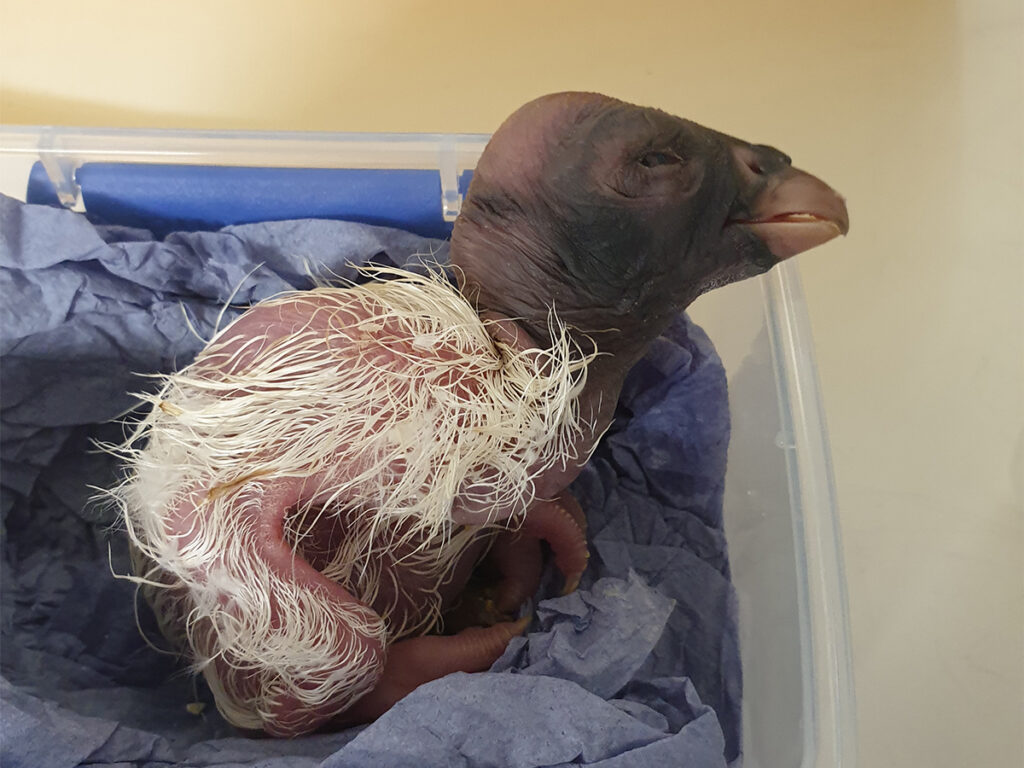
At 3:00am on 21st June, the chick was free from the egg and feeding well on a smoothie made from blended rat legs, quail breast and mice! Over the following days, the chick continued to feed well, gaining a good amount of weight.
Due to Martin’s behaviour towards his chicks in the past, the team decided to move him to a separate aviary and allow Midas to raise the chick by herself. Midas has always shown a nurturing nature towards her offspring, so the team felt that leaving the chick with just Midas would be the best course of action. Therefore on the 26th June, Midas was reunited with her chick and after a nail-biting 15-minute wait, Midas came to see her offspring and immediately started to feed it before settling down in their nest together! A sigh of relief echoed through the team as Midas was finally able to raise her young. The chick is continuing to grow and is noticeably stronger at each health check. Midas is proving to be a great mum and the chick has now gained four times it’s body weight in the days since they were first introduced.
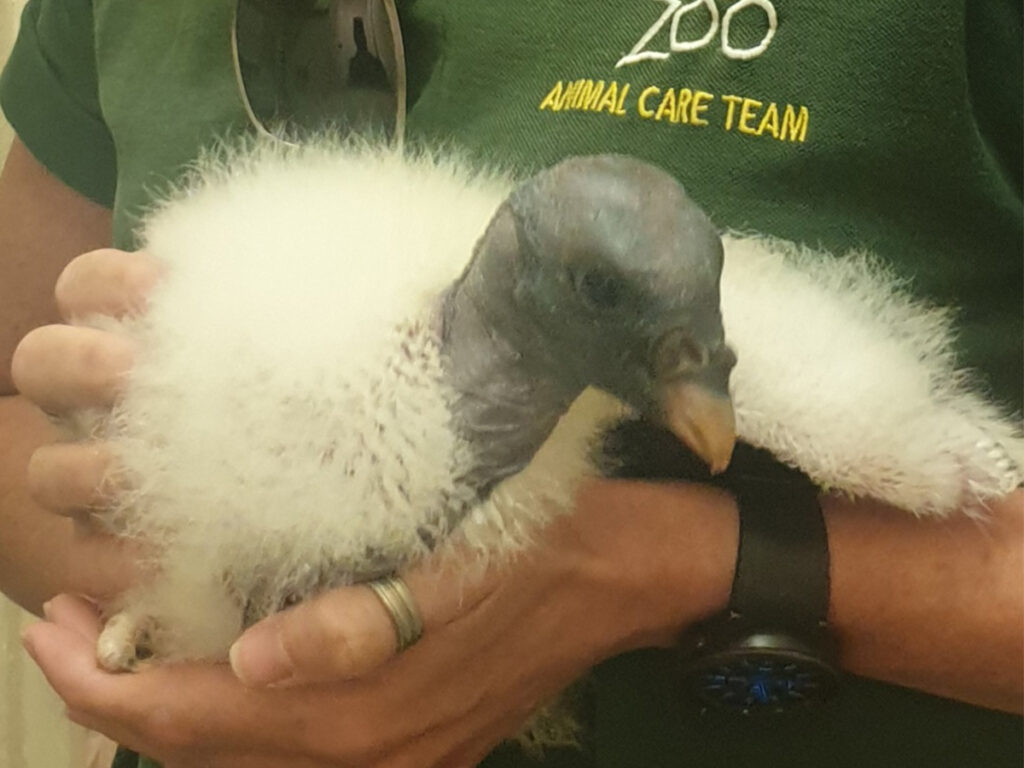
Martin will now stay in his separate aviary off-show until the chick is much older, reaching the fledging stage at around 3 to 4 months old. Once it reaches its juvenile age, it will be moved to another collection or remain in one of our off-show aviaries so that Martin can safely be reunited with Midas. This will ensure that Mum and Dad reignite their bond, ready for the next breeding season!
Martin hatched in February 2002 at Frankfurt Zoo and arrived at Colchester Zoo almost 20 years ago, in January 2003, when he was just under a year old! Midas is much older than Martin, hatching in June 1992, and arrived from the International Centre for Birds of Prey, Newent, Gloucestershire in April 2015.
Although King vultures are classed as ‘Least Concern’ on the IUCN Red List of Threatened Species, the hatching of this chick is still excellent news for this species, helping to raise awareness around vulture species and highlighting the positive impact they have within the animal kingdom.
Did you know… King vultures are one of the largest vulture species in South America, after the condor.

